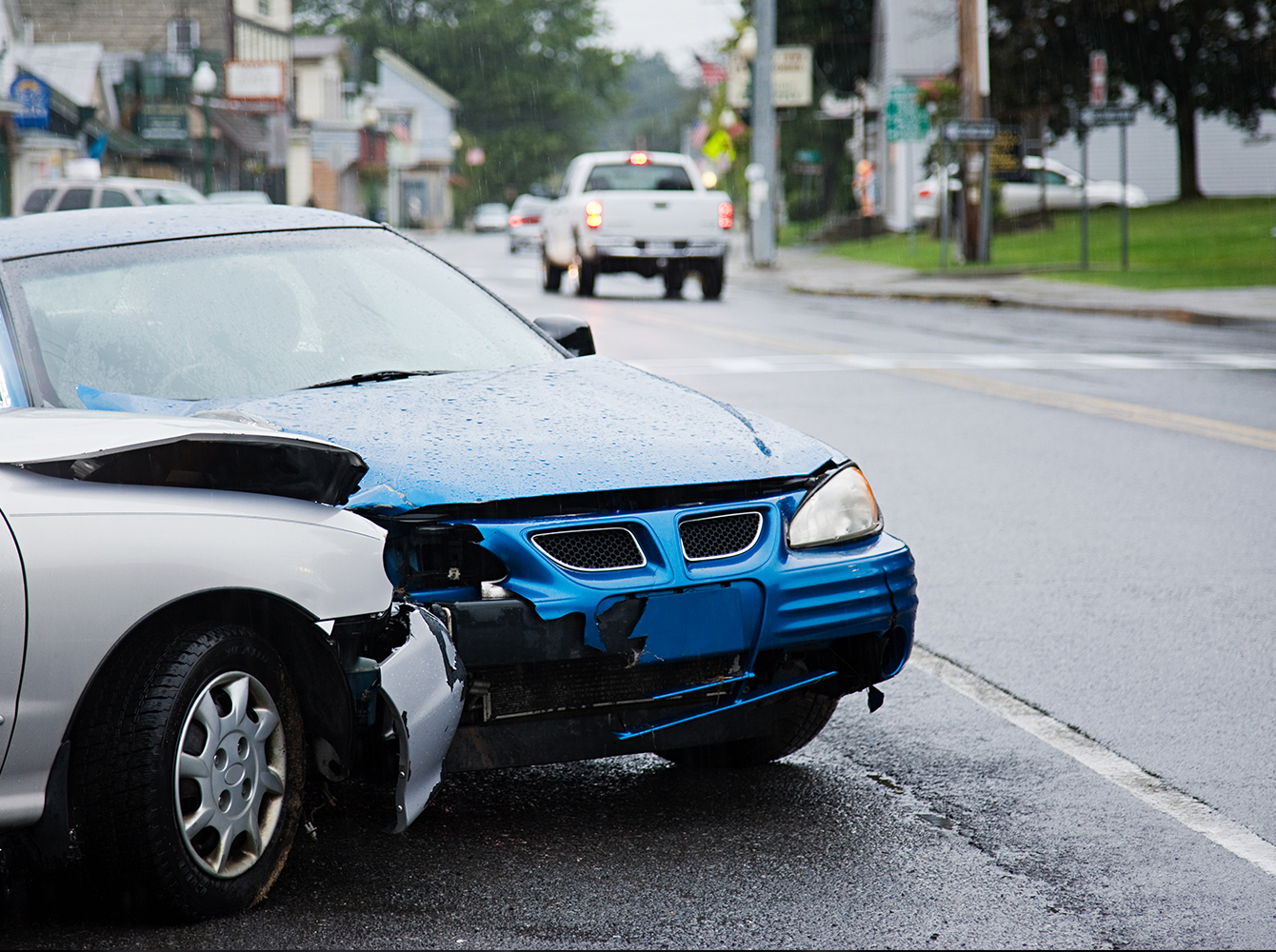What to do after a car insurance non-renewal
- Coverage clarity
- Auto insurance

Car insurance is one of those things you hope you’ll never need – but when you do, you’re grateful it’s there. That’s why getting a car insurance non-renewal notice can feel so unsettling. If your insurance carrier decides not to renew your policy when the term ends, you could be left wondering what went wrong and what to do next.
The good news? A car insurance non-renewal doesn’t mean you can’t get covered again. This guide will explain exactly what non-renewal means, how it’s different from car insurance cancellation and the steps to take after car insurance non-renewal to make sure you stay insured.
What is car insurance non-renewal?
A car insurance non-renewal happens when your insurer decides not to continue your policy once the current term ends. This is different from a car insurance cancellation, where your policy ends during the term.
With non-renewal, you’ll have coverage until your policy expiration date, but after that, you’ll need to find new coverage. Non-renewal is a form of car insurance policy termination, but it doesn’t always mean you’ve done something wrong. There are a lot of reasons for a non-renewal, including business decisions unrelated to you or your driving habits.
Car insurance non-renewal vs. car insurance cancellation
Timing
- Non-renewal happens when your policy reaches the end of its term, and your insurance company decides not to offer you a new policy for the next term. You stay covered until your policy’s official end date.
- Cancellation can happen anytime, even in the middle of your policy term. This means your coverage could end, leaving you uninsured if you don’t act quickly.
Who starts it
- Non-renewal can be triggered by either side. Sometimes you might choose not to renew because you found a better deal. Other times, the insurance company decides not to renew due to your driving history, claims, or even changes in their own business strategy.
- Cancellation is usually the insurance company’s call – and it’s almost always because of a serious issue like missed payments or giving false information on your application.
Reasons
- Non-renewals can happen for various reasons, including too many claims filed in too short of time, your risk profile changed or the insurer stopped offering coverage in your area.
- Cancellation is usually tied to more urgent problems, like falling behind on your payments, losing your license or committing fraud when you applied for your policy.
Common reasons for car insurance non-renewal
Driving record & risk factors
- Insurance companies are all about risk – and drivers with multiple violations, a history of at-fault accidents, or a recent DUI are considered higher risk to insure. If your record has a pattern of risky driving, your insurer may decide not to renew your policy.
Claims history
- Insurance is there for the unexpected, but filing too many claims – especially over a short period – can make insurance companies nervous. If you’ve had frequent at-fault accidents or multiple expensive claims, your insurer may decide you’re too costly to keep on their books.
Changes in risk profile
- Where you live plays a big role in your insurance rates — and even your eligibility for coverage. If you move to an area with higher crime rates, more severe weather, or higher accident frequency, your insurance company might decide not to renew your policy when your term ends.
- If you recently added a driver with a poor driving record (think: lots of tickets, accidents, or a suspended license), your overall risk as a household goes up. That can lead to car insurance non-renewal, especially if the insurance company’s guidelines don’t allow high-risk drivers on standard policies.
Insurer’s business decisions
- Sometimes car insurance policy termination has nothing to do with you personally. If your insurance company decides to stop offering policies in your state, or if they update their underwriting rules to exclude certain types of drivers or coverage, you could lose your policy through no fault of your own.
Common reasons for car insurance cancellation
Non-payment of premiums
- This is the number one reason for car insurance cancellation. Unlike non-renewal, cancellation can happen mid-policy. If you miss a payment deadline, your insurance company may cancel your coverage right away (after any legally required grace period). A lapse in coverage can make it harder and more expensive to get insured again.
Fraud or misrepresentation
- Honesty matters when you apply for car insurance. If your insurance company finds out you misrepresented your driving record, your vehicle usage, or any other important detail, they may cancel your policy immediately. This kind of fraud or misrepresentation can seriously hurt your ability to get affordable coverage elsewhere.
Suspended or revoked license
- If you lose your license – whether for a DUI, too many traffic violations, or another serious issue – you’re no longer eligible for standard car insurance. In this case, your insurance company can cancel your policy right away because you no longer meet the basic legal requirements to drive.
Enjoy the ride with the right auto insurance
Steps to take after car insurance non-renewal
Getting a car insurance non-renewal notice might feel like a dead end, but it’s really just a detour. You still have options, but you need to act quickly so you don’t end up with a lapse in coverage. Here’s how to handle car insurance non-renewal and get back on track.
Step 1: Read your non-renewal notice carefully
Your car insurance non-renewal notice will explain why your coverage isn’t being renewed. If it’s unclear, call your insurance company for clarification.
Step 2: Improve your insurability
- Review your driving record to check for accuracy and fix any errors you find.
- Avoid filing unnecessary claims.
- If location played a role, research insurers who specialize in high-risk areas.
Step 3: Shop for a new car insurance policy
- Compare quotes — including from high-risk auto insurance providers if needed.
- Use an insurance broker like VIU by HUB for expert advice and access to 50+ insurance carriers.
- Be sure your new policy starts before your old one ends to avoid a lapse.
How to prevent car insurance non-renewal in the future
The easiest way to avoid car insurance non-renewal is to stay ahead of the risks. Start by keeping your driving record clean – fewer tickets and accidents make you a safer, more insurable driver. Be smart about claims, too. Filing too many, especially for minor issues, can make insurers see you as high-risk. If a repair costs less than your deductible, paying out of pocket can help protect your claims history. Finally, always stay on top of your payments. Late or missed payments can lead to non-renewal or cancellation so setting up autopay can be a simple way to keep your coverage secure. And if you’re ever unsure where you stand, a platform like VIU by HUB can help you review your options and find the right policy for your needs.
FAQs about car insurance non-renewal
Does non-renewal affect my driving record?
No, non-renewal itself doesn’t go on your record, but the reasons behind it (like violations) could.
Can I get insurance after a non-renewal?
Yes! Many insurance companies are willing to cover drivers after a non-renewal.
What are my legal rights after car insurance non-renewal?
You have the right to understand the reason and seek coverage from other insurance companies.
Does non-renewal affect my credit score?
No, but a lapse in coverage could, so act fast.
A car insurance non-renewal doesn’t mean the road ahead is closed; you just need to find a new path. Whether you need help comparing policies, understanding the difference between car insurance non-renewal and cancellation or finding options after car insurance policy termination, VIU by HUB can help.
A panoramic outlook on
all things insurance
The VIU Point is here to help you make sense of it all, so you can confidently compare auto insurance quotes and make the best policy decisions.


